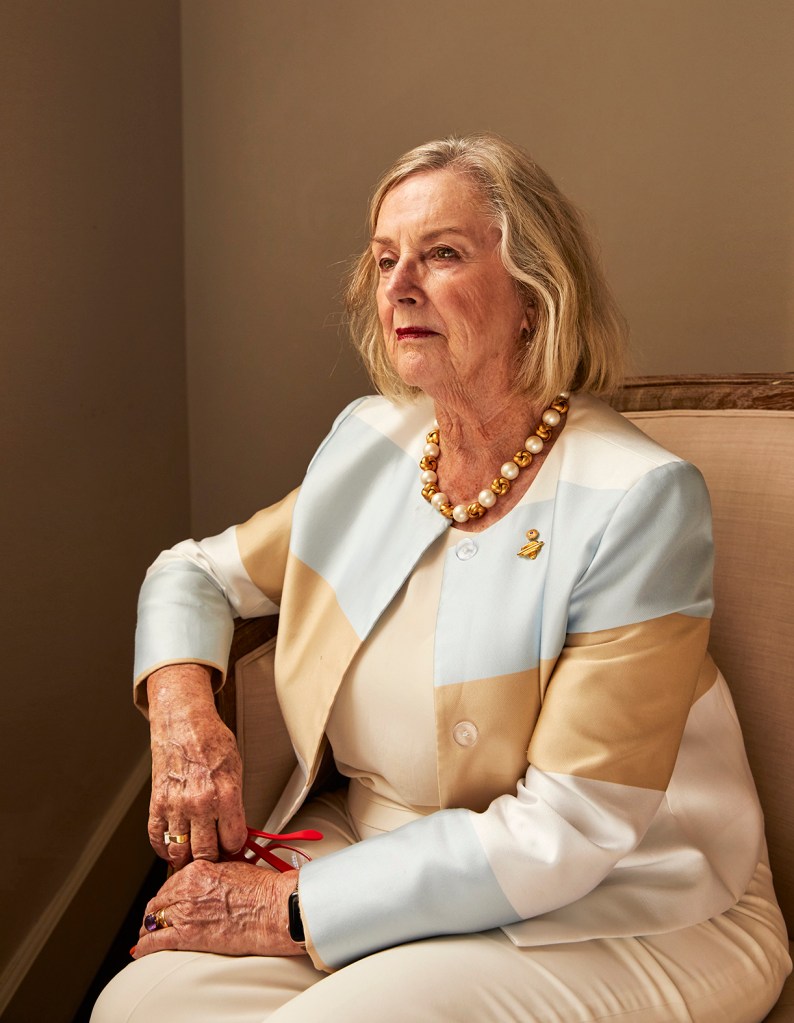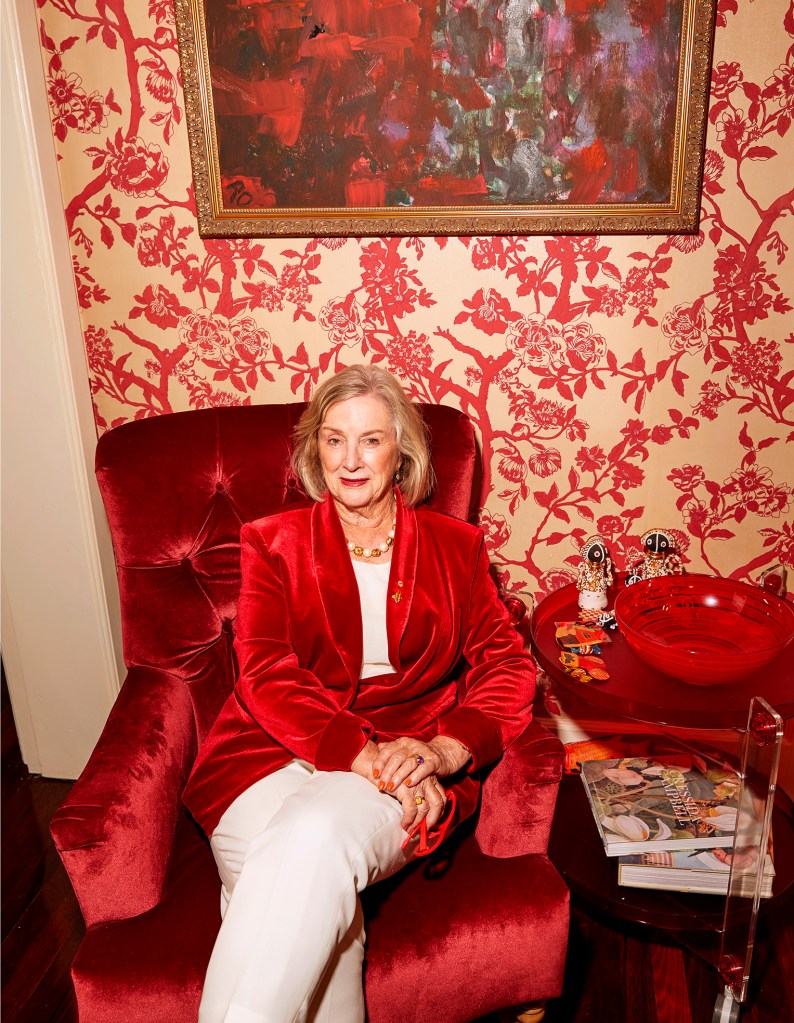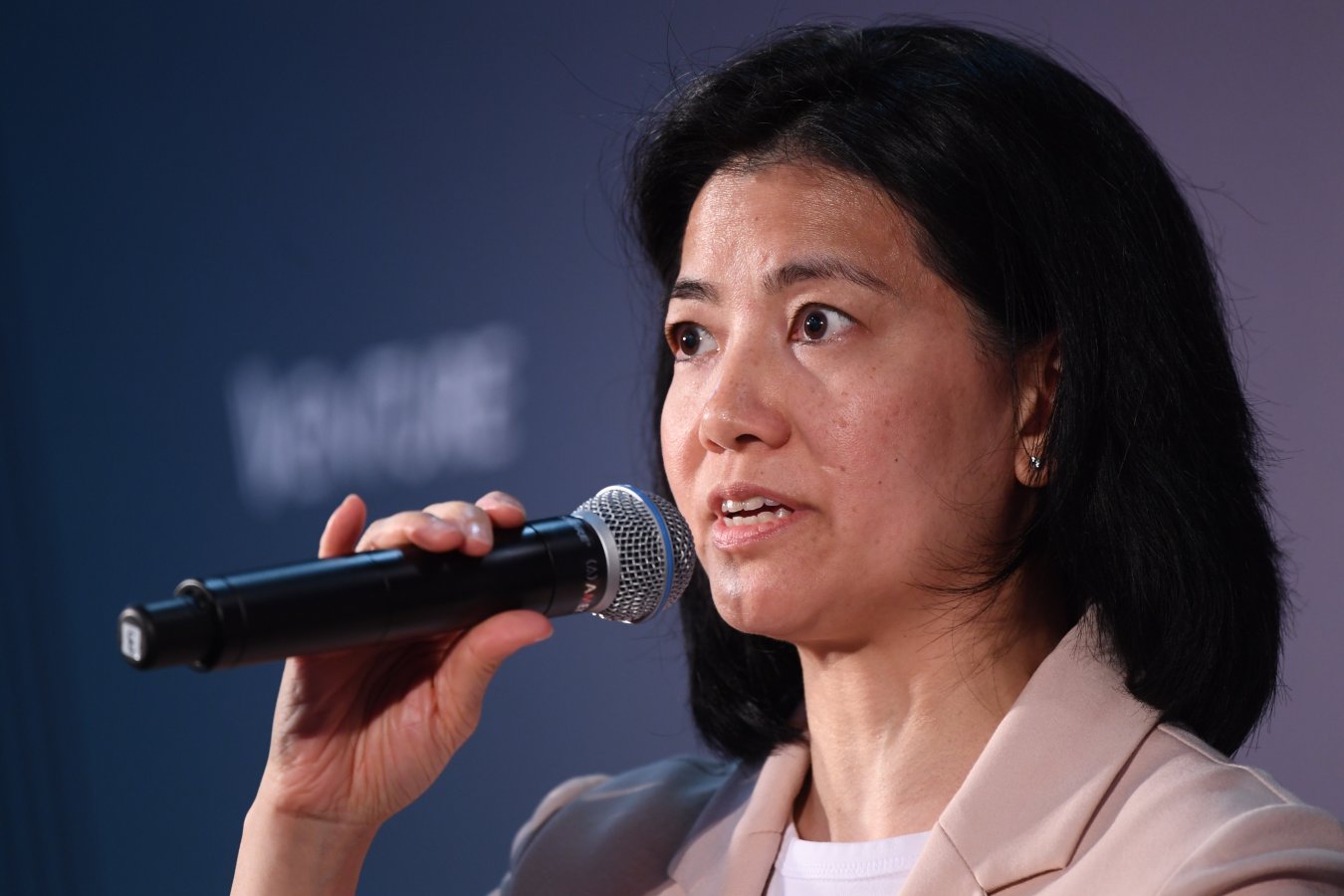Wendy McCarthy AO is a businesswoman, activist, author and former university chancellor. Her numerous professional associations span the public and private sectors and international aid. She reflects on a life’s work in the public eye.

Wendy McCarthy will be speaking at the Forbes Women’s Summit in Sydney on March 22nd.
When Wendy McCarthy AO became deputy chair of the board of the Australian Broadcasting Corporation in 1983, the ABC had never employed a female newsreader. When McCarthy asked why, she was told that women’s voices “weren’t authoritative enough.”
“And I said, ‘Well, my voice is – so let’s change it.’ They laughed at me, but they weren’t laughing a year later because we did change it.”
Until that point, women were also not permitted to take on sound or camera roles at the ABC – the purported reason was that cameras were too heavy for a woman to lift.
“My response was that women lug around 30-pound babies, so a camera isn’t too heavy for us. The ABC used to be controlled by the old Postmasters Union, and it was all about ‘jobs for boys’ back then.”
McCarthy also used her eight years as the deputy chair to introduce childcare facilities at every ABC building. She oversaw the rolling out of ABC shops, and the commission structure became a cooperation, a massive undertaking for the national broadcaster.
McCarthy has held over 30 board roles, including at the world’s most experienced and successful litigation funder, IMF Bentham, and the Australian Heritage Commission, Symphony Australia and Star City casino. She has also been the CEO of the National Trust and Chancellor of the University of Canberra.
In her memoir, Don’t Be Too Polite, Girls (2022), McCarthy describes her childhood with candour. McCarthy grew up in the country town of Orange, where she rode her pony to school. Her father was an alcoholic and died of alcoholism in his early forties. By age 15, she had realized that “it was a burden to have that sort of a father”.
When she was taunted in the schoolyard about his addiction, she simply said, “I know”. She felt it better to acknowledge the fact than try to deny it.
“I decided at that moment that I would never be defined by someone else,” she says. “And that was a great lesson to have in life. The other thing I learned as a child is what we now call ‘mindfulness’. I lived in the moment. When my father was sober, he was entertaining. He told stories, and he was adventurous. And when he was drunk, it was a disaster. I had to enjoy the parts of him that were good.”
Friends in high places
McCarthy married finance executive Gordon McCarthy, and they lived in London and the United States before moving back to Sydney to start a family.
The young couple were living in Sydney’s Palm Beach when McCarthy attended ‘baby preparation classes’ along with Anna Murdoch, who was then pregnant with Elisabeth.
“I told my husband I’d met a nice woman called Anna Murdoch. My husband said, ‘Don’t you know who her husband is?’ I didn’t. She had just told me that her husband worked in magazines and newspapers. My husband told me it was Rupert Murdoch,’” Wendy recalls with a laugh.
“I used to get castigated… Certain people referred
– Wendy McCarthy AO
to me as ‘that woman’ or a ‘communist lesbian’.”
Both with young families, the McCarthys had the Murdochs over for meals at their home. McCarthy says that despite the passing of years and infrequent contact, a mutual fondness remains between her and Anna Murdoch.
“I hadn’t seen Anna in quite some years, and yet when I went touring with the ABC’s symphony orchestra in New York, I felt totally able to ring the Murdochs up and say, ‘Will you host a function for the orchestra?’ And they did – at the most beautiful hotel in New York.”
Gordon passed away in 2017 after 53 years of marriage.
“I pretty well went under a doona for a year,” McCarthy says of her immense grief.
Opening doors for women

In 1987 Wendy McCarthy joined CEW, then a group of 15 women, whose mission was to grow the number of women at the helm of Australian businesses . She was CEW’s president between 1995 and 1996. Its activities towards achieving gender balance in government and business include advocacy, research, targeted programs and scholarships.
“At the time we started, there was a total of about five female CEOs, other than those in small businesses. Feminism in the corporate world in Australia was way behind other parts of the world,” says McCarthy.
“We used to have our meetings in little hotel rooms – it’s incredible to think there are now 1000 members,” she says.
In 1989, McCarthy was appointed an Officer of the Order of Australia for outstanding contributions to community affairs, women’s affairs and the Bicentennial celebrations. In 2005 she was named one of Australia’s Top 100 Public Intellectuals by The Sydney Morning Herald.
Throughout her memoir, her joie de vivre is evident and a major contributor to her professional success and personal happiness.
“Every appointment I got felt like the best in the world,” she says simply.
McCarthy has dedicated much of her life to increasing access to health and education and women’s right to choose – whether it be their profession, their marital status, or to exercise their reproductive rights. She is a Patron of the Sydney Women’s Fund, an ambassador for 1 Million Women, and was an advisor to the human rights and career coaching platform Grace Papers.
McCarthy has also worked extensively in overseas aid and development projects. She worked in places like Thailand and Kenya and alongside Nelson Mandela’s wife, Grace, to lessen the stigma around menstruation. She had a long-running connection with Plan International, which seeks to advance children’s rights and equality for girls.
As a high-profile female campaigning for a more equitable society, McCarthy can
relate to the barrage of abuse former New Zealand prime minister Jacinda Adern has faced, which reportedly contributed to her resignation in January.
“Trolling was impossible back then, but I used to get castigated. Certain people referred to me as ‘that woman’ or a ‘communist lesbian’. The first time it happened, I sort of went into a heap. And then I decided that I wasn’t going to cop it.”
“I had dinner with [former prime minister of New Zealand] Helen Clarke about eight weeks ago, and we both said how we didn’t think we’d be able to stomach the deeply insidious online abuse Jacinda faced,” she adds. “It’s more than disgusting. It’s deep and dark and ugly.”
However, McCarthy believes that Ardern will reappear after a “sabbatical” and predicts she will become a prominent figure on the world stage.
“She’s been a magnificent prime minister, and I think her resignation is perfect,” she says. “She’s gone on her own terms. People who stay too long in jobs are never really very successful. I can’t think of too many blokes who have done that. Most of them have to be extracted from the job screaming and kicking. I know someone who has been on a board for 19 years, and he said, ‘But I’m really good at it.’ And I said, ‘Well, no, you’re not – you’re predictable. And that’s a terrible thing for a company.”
The eighties
McCarthy turns 82 this year, though she has scarcely slowed down. She is eight months into a year-long book promotion for her second memoir, Don’t Be Too Polite, Girls.
“A total indulgence – but it’s been fun,” she says of the literary festival circuit and speaking tour she’s been on.
However, McCarthy concedes that her risk assessments have changed now that she is in her eighth decade.
After getting knocked over by a wave and needing a few months of physio, she has stopped bodysurfing. She does laps in an ocean pool instead, plus two online Pilates sessions and two water therapy classes every week – plus her morning walks.
“Eighty isn’t 70. Your bones are older, and the little pains I could put up with, like a toe annoying me in a shoe or something that is actually arthritic. It’s not about the shoe: it’s about the toe,” she says.
“Nancy Pelosi said in an interview recently, ‘I always wear stilettos, but in suede because they feel like slippers.’ The thought of a stiletto is almost more than I could bear, and she’s my age. But then again, I never did wear stilettos,” she adds with a laugh.
Her advice for the next generation of female leaders is simple: don’t be too polite.
“You always have the right to answer back,” she says.
“As a young girl, I was taught to be seen and not heard. It took me a long time to learn that I didn’t have to be excessively polite.”
“There is a way of answering back, which is called ‘discourse.’



